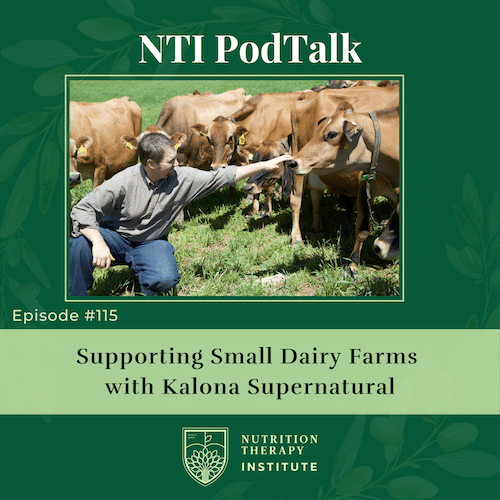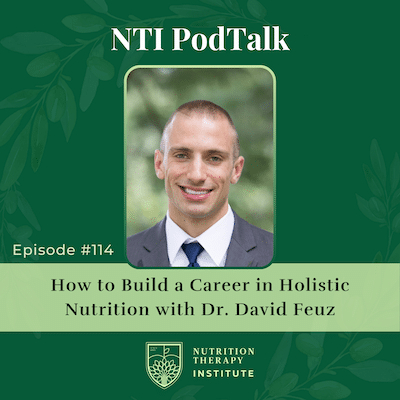
Share this post!
We’ve all been there: chatting with friends, or worse, casual acquaintances after a meal and we start to feel it… that rumbling and grumbling in the belly that can only mean one thing. It’s time to find a bathroom, and fast. Digestive distress is loathsome, but all too common in our world today. I’m here to help you better understand what these symptoms could mean for your body, and what you can do to take control of your digestive health through a holistic approach to gut health.
In the world of holistic nutrition we often refer to the gut as the “second brain”.
The term ‘the gut’ refers loosely to the entire alimentary canal, comprised of the mouth, esophagus, stomach, small and large intestines, and anus. It is what nutrition therapists see as the powerhouse of the entire body, responsible for regulating:
- Immune function
- Inflammation
- Mental/emotional stability
- Skin health
Gut health is truly the cornerstone of holistic health.
A healthy gut simultaneously allows for absorption of micronutrients, which are then shuttled throughout the body to enact daily metabolic processes; and works as a barrier system, moving foreign or potentially harmful substances through the GI tract to be eliminated. If the health of the gut is compromised at any point, its efficacy becomes dramatically reduced.
The GI tract is a fragile system; it needs to be cared for and maintained. When we experience digestive distress, our bodies are speaking to us; giving us information that we can use to boost our overall health.
Do you wake up with a belly ache in the morning? Do you suffer from embarrassing gas or uncomfortable bloating? Do you struggle with elimination that is inconsistent, uncomfortable or unpredictable? Do you get heartburn or indigestion after eating certain foods?
If so, your gut is talking to you or even crying… and it’s time to listen.
And guess what (spoiler alert!), more often than not, symptoms of digestive distress are accompanied by joint pain, fatigue, brain fog, anxiety and/or depression.
How Gut Health and the Diet Are Connected
Digestive distress is all too common in the US, where our Standard American Diet (SAD) is devoid of enzymes, probiotics, and nutrient-dense foods that provide the body with the tools it needs to function optimally. The SAD diet is high in sugar and refined carbohydrates; inflammatory oils and fats; and additives, stabilizers, and binders, which quite literally stresses the gut into dysfunction.
Nutrition therapists say, “You aren’t what you eat. You are what you eat, digest, use, and absorb.” When the body has been compromised, or the GI tract has been exposed to dysregulating foods for a prolonged period of time, chances are one of the processes of food metabolism will be compromised.
You may be thinking, “I eat pretty well, does this applies to me?” There are other reasons why you may be experiencing digestive distress. Below is a list of common causes of GI dysregulation, including why it may have occurred, how to test for it, and what to do about it.
Food Allergies / Sensitivities
Ladies and gents, I can’t stress this enough: if you know something doesn’t sit well with you, don’t eat it. You are stressing, confusing and taxing your GI system every time you consume an aggravating food. Food allergies and sensitivities are born from the body lacking the necessary enzymes to properly break them down. Undigested food particles are perceived as foreign invaders to the body, which mounts an immune response to try and eliminate them. It can cause systemic inflammation and make you prone to other inflammatory conditions or autoimmune diseases. Test for food allergies and delayed food sensitives with your holistic nutrition practitioner or naturopathic doctor. Make sure to have your practitioner run a test that includes IgG, IgA and IgG responses, as each antibody tells us something different.
Dysbiotic Bacteria
Much of the good work the gut does comes from its billions of helper bacteria. The microbiome refers to the bacteria and other organisms that help digest food, initiate immune responses, and communicate to other parts of the body. But, there are good guys and bad guys, and it’s important to fortify the gut with the helper bacteria to promote optimal health. When healthy bugs are lacking, it provides the perfect chance for opportunistic and harmful bacteria to become overgrown, leading to an impaired digestive process. Bacteria levels can be tested using a stool analysis. Consult your nutrition therapist to learn more about the status of your microbiome. Boost healthy bacteria with probiotic supplements and fermented foods like kefir, sauerkraut and yogurt.
Candida
Candida Albicans is a yeast, or fungus, that lives naturally in the GI tract. It becomes overgrown most commonly due to antibiotic consumption – as the ‘good bugs’ in the gut are killed off, causing an imbalance in the gut flora. When candida population grows to a dysbiotic level, it causes a host of digestive and immune complications. Symptoms like gas and bloating, chronic sinus infections, female yeast infections and athlete’s foot may all be indicative of a candida overgrowth. If you suspect you have candida, work with your holistic practitioner to get tested. There are a variety of tests available including stool, blood, and urine, which measure the byproducts of the candida organisms. Candida organisms consume sugars and starches so avoid all added sugar and sugar in most fruits, root vegetables, vinegars and alcohol.
Parasites
Did your digestive symptoms start at a very specific time; perhaps after an international trip? Parasites are far more common in the United States than many realize. There are hundreds of parasites that can be contracted by contaminated food, water and environment. Testing includes blood tests, fecal exams, colonoscopy and endoscopies. Your holistic nutritionist will likely recommend some herbal antimicrobial supplements as well as a diet to starve out the dynamic and multiplying organisms depending on what parasite is detected.
There are other conditions that are also responsible for digestive distress, which include but are not limited to SIBO, Crone’s disease, diverticulitis, Celiac disease, ulcerative colitis, and irritable bowel disease. All of these can be addressed and supported with a specific dietary protocol from your holistic practitioner or support team.
The Holistic Approach
Be mindful of your relationship with food and let symptoms of digestive distress steer you towards a more supportive diet and lifestyle. Using holistic health and nutrition, there are preventative and proactive steps you can take to regain control of your health. Your body is always communicating information. It’s up to you to listen to it.
Stay tuned for Digestive Distress Part 2: Healing Your Gut, where I’ll explain ways to prevent and remedy symptoms of digestive distress in the short and long term. To your health!
Ready to Dive Deeper into Nutrition? The Nutrition Therapist Master Program Will Take You There!
If this seasonal produce guide has ignited your passion for nutrition and well-being, take the next step towards a fulfilling career. Enroll in our Nutrition Therapist Master Certification program and embark on a journey of knowledge, empowerment, and transformation.
Enroll Now: Try out a course with our Single Course Enrollment option!
Have questions? Contact our admissions team at ad********@*******ol.com or by calling 303-284-8361 for personalized assistance.
About the Author: Anneliese is a certified Master Nutrition Therapist and graduate of NTI. Using personal experience and her extensive background in holistic nutrition, Anneliese targets gut health to reverse the degenerative and inflammatory conditions of her clients.
Image is licensed under CC0 1.0
Share this post!


















